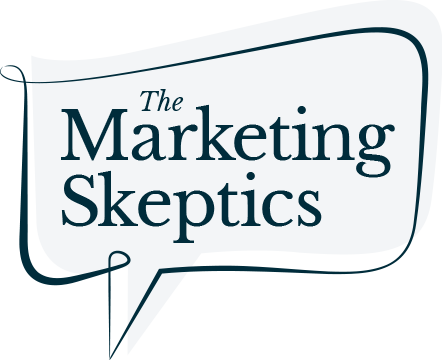30%
Steady increase in website visitors year over year for the past six years (and counting).

Every business everywhere is trying to get customers to notice and engage with their marketing—but the secret to making this happen might actually be the opposite of what you think.
Many marketers fight against what works, or misunderstand it entirely. After all, it seems obvious: If you want people to buy what you’re selling, all you need to do is tell them how great it is.
Right?
Not quite.
If you actually want someone to pay attention to what you’re selling, you have to pay attention to them. And if you want to drive action with your customers, you have to understand what drives them.
Understanding these two truths is a good place to start:
1. Your customers don’t want to hear about what you’re selling. (Until they do.)
With very few exceptions, people aren’t waiting around to learn about what you’re selling.
They’re not inherently motivated to read your ad, watch your video, or dig into your web page, just because you have a great product and a clever headline.
What people do care about is finding solutions to their own challenges, desires, and goals.
In other words, your customers don’t care what you’re selling—unless what you’re selling can solve their problems. Then, bingo.
Knowing this means you know exactly what to talk to them about. Instead of talking about your product, tell them how it meets their needs (or fulfills their desires).
Here’s the second thing to keep in mind.
2. Your target customers don’t trust you. (Yet.)
Even if you have a product that will truly improve the lives of your potential customers, and even if you have the most sincere motives at heart, your potential customers are going to be pretty skeptical of you.
They know you’re trying to sell them something, so they’ll see your marketing through that lens.
This is particularly true when it comes to long-journey purchases that require significant investment and take time to consider. If you’re selling a software solution that costs $20,000 a month, your word doesn’t go very far on its own.
On the other hand, if your potential customer hears someone else talking about how great your product is—especially if it’s someone they respect or relate to—well, that’s a different story.
That’s a story they might actually trust.
So what does this mean for your marketing?
It means, whatever you’re putting out there, if you want people to respond, it’s going to have to be good.
And here’s what good looks like:
It’s harder than it sounds.
There’s something particularly challenging about pulling this off for your own brand. It’s so much easier to talk about ourselves. Speaking to prospects about what they need—or asking our customers to tell their stories on our behalf—that’s a lot harder.
But when you’re doing it right; when you’re consistently creating good, relevant content and putting it directly in front of the right people—again and again, for as long as it takes to move them toward action… That’s when you have the greatest chance for success. Especially with any kind of considered purchase.
Marketing any other way, honestly, is a gamble.
Fortunately, there are smart, doable ways to create this kind of marketing. If you need help with it, let’s chat.
Want more insights like this? Subscribe to The Marketing Skeptic, where marketing isn’t magic—but strategy is.

Founder of White Crane Design:Build
Steady increase in website visitors year over year for the past six years (and counting).
We’ve quadrupled the number of relevant, qualified leads they receive.
Zero increase in marketing spend—they currently spend less than when they hired us.